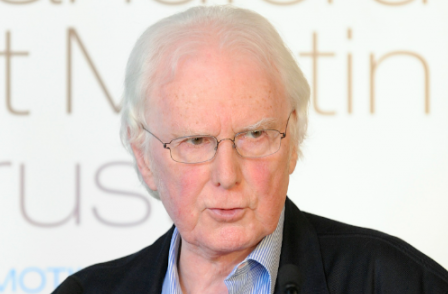
Art critic Brian Sewell has bemoaned the state of religious coverage on television, criticising “mediocre” staffing.
The long-standing London Evening Standard journalist believes religion is “put to one side” on TV for fear of offending.
As well as the quality of output, Sewell also criticised the frequency of programming and the times at which religious programmes are transmitted.
“I think there is not nearly enough serious coverage. Religion is with us and about us all the time,” he told Press Gazette.
“When you look at what goes on in East Timor, it boils down to a religious issue. When you look at what is happening in the Middle East, it boils down to a religious issue.
“The great division between the two great schools of Islam are causing endless problems – do any of us understand why?
“This is so important. It is as important as fascism was in the 1930s. It is as menacing to civilisation as fascism was – and communism for that matter.”
He added: “It should be part of our awareness. But it is a sort of inconvenient thing.
“Belief and faith and these awkward words where there is no definition come into play… these affect our attitude to religion. So we delicately put it on one side for fear of offending people.”
Sewell said religious coverage on the radio is markedly better, highlighting BBC Radio 4’s output, but said television cannot match up.
He blamed television’s obsession with viewing figures, and said the publicly-funded BBC, in particular, should be immune from commercial concerns.
“Television is run by people who are intellectually mediocre, if not worse – mediocre is the best that they are,” he said.
“There are too many people involved in deciding whether or not something should be commissioned. There are too many people affecting what is done after it has been done, in the editing room.”
Sewell added: “They don’t think about the quality, they don’t think about the argument, they don’t think about the need. They think about how many are going to watch it.
“If by lowering the intellectual standards, and dropping the intellectual argument altogether in some cases, you’re going to get a couple more hundred thousand, then that is what happens in the editing suite.”
Asked about the state of religious coverage in the print media, Sewell said: “Is it covered at all?”
Sewell delivered a similar address at the Sandford St Martin Trust awards for religious broadcasting having chaired the judges for the television awards.
The ceremony was held on Monday night at Lambeth Palace, the home of the Archbishop of Canterbury, Justin Welby (who was present).
On the night, David Suchet won two awards for his documentary, In the footsteps of St Paul, which was broadcast of BBC One.
Suchet was named winner of the Premier Award for television and also won the Radio Times readers’ award.
Elsewhere, BBC Bristol’s Hearing Ragas, made for Radio 4, won the Premier Award for radio.
The Sandford St Martin Trust seeks to promote excellence in broadcasting about religion ethics and morality.
Email pged@pressgazette.co.uk to point out mistakes, provide story tips or send in a letter for publication on our "Letters Page" blog
